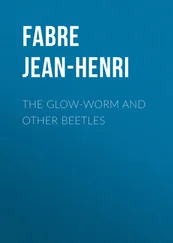Most people who have non-24-hour sleep/wake syndrome have it because they’re blind, so their hypothalamus never finds out where the sun is. But with Raf it must be something else, and no blood test or EEG has ever been able to determine exactly what. Serotonin is the precursor, the sassafras oil, of melatonin, so it could be that he has a mutation in the genes that make the enzymes convert one to the other, although that would imply that he has a lot of excess serotonin sloshing around in his brain, which is the same thing that happens when you take MDMA, and it’s not as if he feels euphoric all the time. It could also be that something’s awry in his suprachiasmatic nucleus, an office of his hypothalamus the size of a grain of rice.
Whatever the cause, the effect is that each morning he slips one more hour out of sync with the rest of the world, as if he’s taking a short westbound flight every day of his life without ever leaving London. At the beginning of his cycle, waking up at eight in the morning is easy; after four days, it’s like waking up at 4 a.m.; after eight days, 8 a.m. is about when he needs to go to bed for the ‘night’; after fifteen days, it’s towards the end of his ‘afternoon’; after twenty days, it’s towards the end of his ‘morning’; and after twenty-five days, he gets another normal day. His cycle isn’t precisely twenty-five hours, he’s not made of clockwork, but it happens to work out too close to make any difference. He would be more at home on Mars, where the length of a solar day is twenty-four hours and thirty-nine minutes, near enough to his own cycle that he could probably make up for the discrepancy with a lot of naps at the weekend under the dim glitter of Phobos. Last year, a woman at a letting agency, not quite following an explanation that he already regretted attempting, said to him, ‘Wow, twenty-five hours — you must get so much done!’
And non-24-hour sleep/wake syndrome has no known cure. He’s tried light boxes, hypnotherapy, and vitamin B12 injections, but nothing works. For a few months he took melatonin tablets, and that did help a little bit, but a doctor told him that the longer you kept taking melatonin, the more you’d have to take to get the same effect, just like MDMA, and that after a while the melatonin would start to shrink your pineal gland in the same way that testosterone supplements could shrink your balls. The pineal gland, he’s read, was once a blush of photosensitive cells on the forehead of an eyeless fish, but since then evolution has yanked it inside the skull. He doesn’t want to lose his antique monocle, his shuttered window.
Raf had once hoped to become the first person in his family to go to university, but in the end he left school before his A levels because for about two weeks out of every four he couldn’t stay awake in lessons. He’s never had a real job. And he doesn’t think he’ll ever get married. Isaac says he should just trawl the sleep disorder support messageboards for a girlfriend who has the same syndrome. But the problem is that nobody else is likely to have his exact cycle. And, perversely, the closer his cycle was to that of a hypothetical lover, the more it would drive them apart. If hers was twenty-six hours against his twenty-five hours, they would synchronise every six hundred and fifty hours (by which time he would have lived through twenty-six subjective days and she would have lived through twenty-five). But if she had a cycle of about twenty-five hours and fifteen minutes against his cycle of about twenty-five hours, they would synchronise only every 2,525 hours (by which time he would have lived through a hundred and one subjective days and she would have lived through a hundred) which made his basic estrangement from the normal circadian rhythm look trifling in comparison.
In other words, their cycles would be mutually inverse for weeks at a time before they lumbered back together, as if each were going away on long business trips into the other’s night. And their mutual synchrony would itself only synchronise with Greenwich Mean Time — making them indistinguishable from a normal couple for long enough to eat breakfast, lunch, and dinner together at the correct times — every 60,600 hours, or about every seven years, or about every two and a half blue moons. What if one of them had flu that week? Plus all this is to disregard the gravitational pull that each would exert on the other’s cycle. Raf can make these calculations easily because back when he was trying to teach himself programming he adapted an open-source biorhythm generator into a new application to graph where he’ll be in his cycle at any given time and date in the future. He’d planned to use it to schedule important appointments. But the life of a guy with non-24-hour sleep/wake syndrome is not exactly bursting with those.
That’s not to say he’s been single and friendless all this time. He’s twenty-two, which is an age when a lot of people still play polyrhythms with their bodies for days at a time; drugs help with that. His last girlfriend was a DJ, like Isaac, so she might play from midnight until four and go to bed at five, or she might go to bed at eight in the evening and go back out to play an afterparty at four in the morning, or she might stay up all weekend and then sleep all through Monday. To make two tempos match up a DJ normally just needs to twiddle a pitch control, but in real life they didn’t synchronise very often; for her, though, that was true with everybody she met, so Raf was at no disadvantage. Sometimes they’d improvise a sort of laggard domesticity: when she got a minicab back to her flat at dawn he’d already be cooking a curry, and they’d eat it on her balcony as the sun came up, go for a walk through the dewy park nearby, come back to fuck and smoke weed and watch DVDs until lunchtime, fall asleep until it was dark again, and then meet some friends in the pub. She was gorgeous, with big green eyes like smashed jade, but what he loved most was her detachment from the world: she was vague, almost vaporous, bemused by everything but surprised by nothing. He’d never been so happy for so long.
Then, in March, she told him she’d decided to move to Berlin. Raf waited for her to reassure him that the flights were cheap enough that he could visit her every couple of weeks, which was about as often as they got to see each other properly anyway. But then he realised that no invitation was implied. That conversation was the most practical he’d ever seen her. Afterwards, he found out from Isaac that she was already seeing someone new, a Brazilian techno producer who was known for playing fourteen-hour DJ sets. Isaac hadn’t intended to tell Raf about it, but he’d taken two good pills that night, and he can’t keep secrets when he’s high, which is why most of the time he does his conscientious best to avoid hearing secrets in the first place, like a spy revoking his own security clearance.
These six weeks since she left have been like the lowest point of the worst comedown from the filthiest Chinese amphetamines anyone has ever had, although at least for once in Raf’s life it’s as if social expectations have shifted to synchronise with his own cycle: he’s been dumped, so it’s natural that he sometimes sleeps all day and drinks all night. Mostly, the change seems external, not internal. The shift is in the world around him. When you take good ecstasy, it feels as if the drug can pump from solid objects a joy that has always been hidden there inside them but will otherwise seep to their surface only very gradually. Now he feels the opposite: those same objects are desiccated, as if you could stand there with your tongue out for days and not a drop would fall. And it isn’t getting any better.
Once, Isaac admitted he was scared that one night he might take so much MDMA that all the serotonin receptors in his head would burst like the turbines of a dam and after that last flood he’d never be able to take pleasure from anything again. That’s how Raf is now. And while Isaac keeps saying he’ll get over it, this despondency feels both permanent and territorial, as if joy might still exist somewhere but will never come back to these specific streets, this specific desert, even though she doesn’t even live here any more.
Читать дальше












